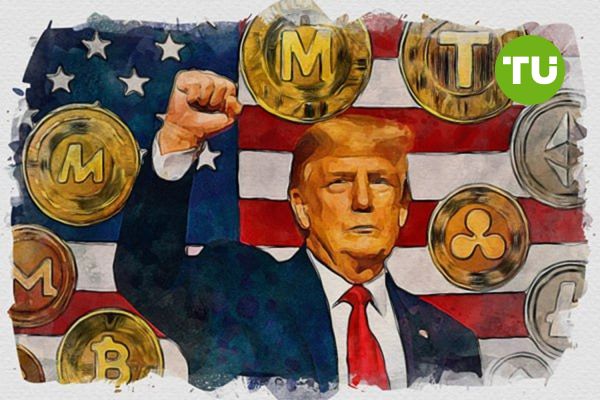Trump crypto projects face congressional probe over suspected misconduct
 Congress targets Trump meme coins
Congress targets Trump meme coins
A group of senior House Democrats has launched an investigation into President Donald Trump’s cryptocurrency ventures, citing concerns over financial misconduct, foreign influence, and national security risks.
The probe centers on Trump-backed initiatives such as World Liberty Financial (WLF), the $TRUMP and $MELANIA meme coins, and their connections to controversial figures and funding sources.
Treasury inquiry and concerns over foreign interference
In a letter dated May 14, 2025, to Treasury Secretary Scott Bessent, Representatives Gerald Connolly, Joseph Morelle, and Jamie Raskin requested access to all Suspicious Activity Reports (SARs) related to these crypto assets. The lawmakers expressed potential violations of campaign finance laws, securities regulations, and consumer protection statutes, warning that cryptocurrencies may serve as untraceable channels for bribery, money laundering, or foreign interference.
Key figures and additional targets of the investigation
A central focus is the $75 million investment made by crypto entrepreneur Justin Sun in WLF. This significant funding occurred shortly before the SEC paused enforcement action against Sun, raising suspicions of preferential treatment or a possible quid pro quo. Lawmakers stressed that such transactions—especially involving non-transparent token ownership—could enable foreign actors to covertly curry favor with Trump or influence U.S. policy.
The investigation also includes SARs related to WinRed, a Republican digital fundraising platform previously accused of deceiving elderly donors, and Elon Musk’s America PAC, which reportedly funneled more than $250 million into Trump’s campaign. Critics argue that both entities may have exploited regulatory gaps to advance partisan interests and enrich key political figures.
Scrutiny of meme coins and the need for oversight
Trump’s meme coin projects have also come under scrutiny. Reports indicate that entities tied to the Trump family control 80% of all $TRUMP tokens and have earned up to $100 million in trading fees—while retail investors suffered substantial losses amid high market volatility. Additionally, the planned USD1 stablecoin, expected to be used in a $2 billion deal involving a crypto firm with a criminal background, has heightened lawmakers’ concerns.
Amid growing calls for stricter oversight of political fundraising and digital assets, this investigation underscores the convergence of cryptocurrency, politics, and power—along with the urgent need for transparency in today’s rapidly evolving financial landscape.
Toward fairer crypto regulation
Notably, U.S. policymakers have been increasingly active in developing a secure and equitable regulatory framework for the crypto industry. In a recent joint initiative, Senators Cynthia Lummis and Bernie Moreno formally requested that the Treasury revise tax rules they say could negatively affect companies holding digital assets. Their goal: to create a fairer tax environment that supports innovation in the digital finance space.













































































































































